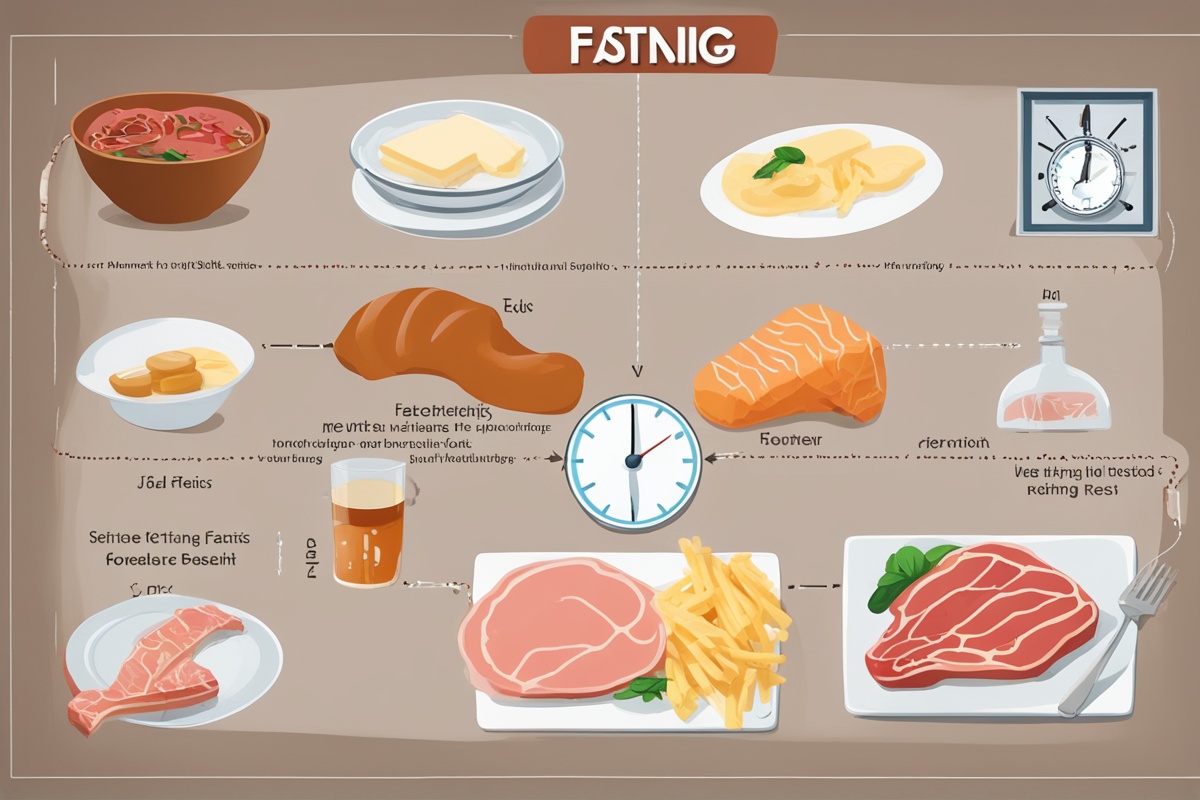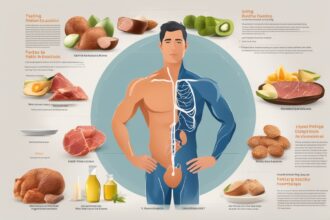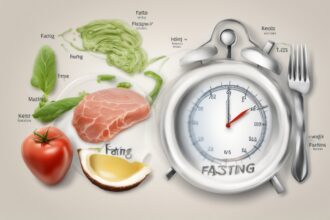Intermittent fasting (IF) has gained immense popularity in recent years as a powerful tool for weight loss, improved metabolic health, and even longevity. Among its many benefits, one of the most intriguing is its potential to stimulate autophagy—a natural cellular repair process. In this comprehensive guide, we’ll dive deep into the concept of intermittent fasting for autophagy, exploring how this eating pattern can help rejuvenate your cells, support overall wellness, and potentially slow the aging process.
What Is Autophagy and Why Does It Matter?
Autophagy, derived from the Greek words for “self” and “eating,” is a cellular process where the body cleans out damaged or dysfunctional components, recycling them to create new, healthier cells. Think of it as a cellular “housekeeping” mechanism that helps maintain optimal function and protects against diseases like cancer, neurodegenerative disorders, and infections.
Autophagy plays a critical role in aging and longevity. As we age, the efficiency of autophagy declines, leading to the accumulation of cellular debris and increasing the risk of age-related diseases. By stimulating autophagy through lifestyle interventions like intermittent fasting, we may be able to enhance our body’s natural repair mechanisms and promote better health.
How Does Intermittent Fasting Trigger Autophagy?
Intermittent fasting for autophagy works by placing the body in a state of mild stress, which signals cells to activate repair processes. When you fast, your body shifts from using readily available glucose for energy to burning stored fat, a state known as ketosis. This metabolic switch not only promotes fat loss but also upregulates autophagy as a survival mechanism.
During fasting periods, nutrient scarcity forces cells to break down and recycle unnecessary or damaged components to conserve energy. Research suggests that autophagy is most active after 14–16 hours of fasting, making popular IF protocols like the 16:8 method (16 hours fasting, 8 hours eating) particularly effective for this purpose. By consistently practicing intermittent fasting, you may enhance your body’s ability to repair itself at a cellular level.
Benefits of Intermittent Fasting for Autophagy
The potential benefits of stimulating autophagy through intermittent fasting are vast and impactful. Here are some key advantages:
- Cellular Renewal: Autophagy removes damaged proteins and organelles, promoting the creation of healthier cells and tissues.
- Anti-Aging Effects: By clearing out cellular debris, autophagy may slow the aging process and reduce the risk of age-related diseases.
- Improved Brain Health: Autophagy has been linked to the prevention of neurodegenerative conditions like Alzheimer’s by clearing toxic protein aggregates in the brain.
- Enhanced Immune Function: The process helps eliminate pathogens and supports the immune system by recycling old immune cells.
- Reduced Inflammation: Autophagy can decrease chronic inflammation, a key driver of many modern diseases.
For more on how fasting impacts brain health, check out our post on Fasting for Cognitive Function.
Best Intermittent Fasting Protocols for Autophagy
Not all intermittent fasting schedules are equally effective for triggering autophagy. The duration of the fasting window plays a critical role in activating this process. Here are some of the best IF protocols to consider:
- 16:8 Method: Fast for 16 hours and eat during an 8-hour window. This method is beginner-friendly and aligns well with autophagy activation timelines.
- 18:6 Method: A slightly more advanced approach with an 18-hour fast and a 6-hour eating window, potentially enhancing autophagy further.
- 24-Hour Fast: Also known as “eat-stop-eat,” this involves a full day of fasting once or twice a week. Extended fasting periods can significantly boost autophagy.
- 5:2 Diet: Eat normally for five days of the week and restrict calories to 500–600 on two non-consecutive days. This method may also support cellular repair.
If you’re new to fasting, start with a shorter fasting window and gradually increase it as your body adapts. For tips on getting started, read our guide on Beginner’s Guide to Intermittent Fasting.
Factors That Enhance or Inhibit Autophagy During Fasting
While intermittent fasting for autophagy is powerful, certain factors can either amplify or hinder the process. To maximize the benefits, consider the following:
- Stay Hydrated: Drinking water during fasting periods supports cellular processes, including autophagy.
- Avoid Overeating: Consuming excessive calories or processed foods during eating windows can counteract the benefits of fasting by keeping insulin levels high.
- Incorporate Exercise: Physical activity, especially during fasting, can further stimulate autophagy by increasing cellular stress.
- Limit Protein Intake: High protein consumption can activate mTOR, a pathway that inhibits autophagy. Focus on moderate protein intake during eating windows.
For more insights on balancing diet and fasting, explore our article on Combining Keto with Intermittent Fasting.
Potential Risks and Precautions
While intermittent fasting for autophagy offers numerous benefits, it’s not suitable for everyone. Certain individuals, such as pregnant or breastfeeding women, those with eating disorders, or people with specific medical conditions like diabetes, should consult a healthcare provider before starting any fasting regimen. Fasting too aggressively or for extended periods without proper guidance can lead to nutrient deficiencies, fatigue, or other health issues.
Additionally, autophagy research is still evolving, and while animal studies and preliminary human trials are promising, more long-term data is needed to fully understand the effects of fasting on cellular repair in humans. Always prioritize safety and listen to your body. For a deeper dive into fasting safety, check out our post on Fasting Safety Tips.
Disclaimer: The information provided in this article is for educational purposes only and should not be considered medical advice. Intermittent fasting and its effects on autophagy may vary from person to person. Always consult with a qualified healthcare professional before making significant changes to your diet or lifestyle, especially if you have pre-existing health conditions or are on medication.
References
- Bagherniya, M., et al. (2018). The effect of fasting or calorie restriction on autophagy induction: A review of the literature. Ageing Research Reviews.
- Levine, B., & Kroemer, G. (2019). Biological Functions of Autophagy Genes: A Disease Perspective. Nature.
- Harvard Health Publishing. (2018). Intermittent Fasting: Surprising Update.
- de Cabo, R., & Mattson, M. P. (2019). Effects of Intermittent Fasting on Health, Aging, and Disease. New England Journal of Medicine.
- Mayo Clinic. (2021). Intermittent Fasting: What You Need to Know.
This content is for informational purposes only and not a substitute for professional medical advice.






